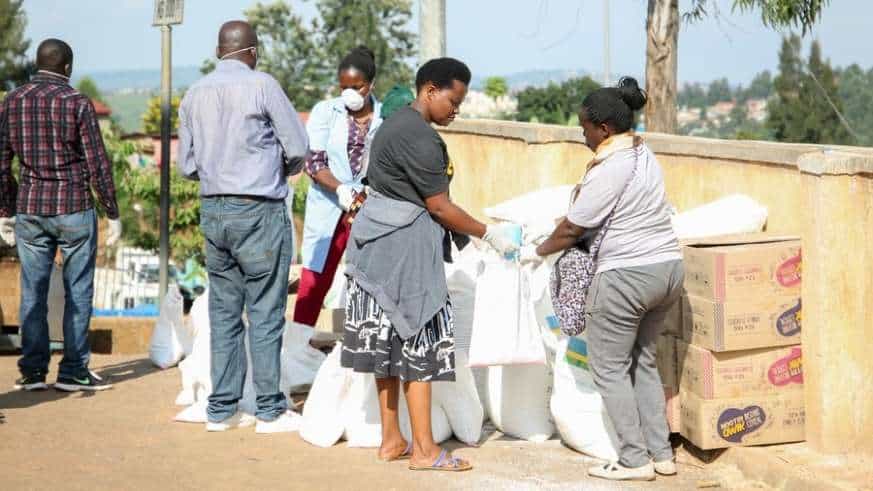Last updated on September 11th, 2021 at 02:57 pm
I don’t read the bible every day, and so I am not the sort to quote chapter and verse at every turn in a conversation. But I know it enough to have some favourite parts, courtesy of six years of my youth reading sections of it and listening to sermons based on them daily, and every Sunday for my whole life.
One of my favourite parts is Psalm 23: The Lord is my shepherd. It speaks of total trust in the Lord, in his ability to provide for and protect his flock. That psalm came to mind on Saturday March 28 when I saw pictures of officials of local authorities delivering food supplies and other necessities to the most vulnerable in our society.
I am sure many Rwandans, seeing these scenes of the state providing for its people, must share the confidence of David as he composed this song. The latest proof that the state cares appeared earlier than last Saturday.
It started with the lockdown, yes, lockdown a week before that was decreed by the government to prevent the spread of COVID-19. It was a tough decision, some might say drastic, but all will agree necessary. And despite the inconveniences the advice to stay home was for our own good, for our safety and security. However, with the lockdown came other issues.
How were those who depend on daily earnings going to survive when they could not go out to work? They would surely have no food to eat and starve to death. They would be unable to pay rent and get thrown out in the streets to die.
The minister of local government gave assurances that no such thing would be allowed to happen, that those people would be taken care of. Some felt reassured and believed him.
They knew how the government of Rwanda works. Others were not so sure, among them some in foreign media; he had not given any specifics. It could happen but might take long and then it would be too late.
Still they hoped. Then on Friday President Paul Kagame said that the programme was indeed in place and directed that it be put quickly into operation. This time there could be no doubt. Everyone knew it would be done.
His word is his bond, they said. And as we say in Kinyarwanda, hardly had the words left his lips, than what he had said was done. So on Saturday the supplies were already in all the villages of the country ready for distribution.
Their delivery and distribution was also unique. They were taken directly to the homes where they were needed in what the media has called door to door distribution. The people did not have to wait in long queues at a distribution centre, sacks or pans, or whatever other container in hand, to receive food and other items.
There were reasons for this. One it was the most sensible and practical thing to do in line with the stay at home order so as to prevent the spread of COVID-19. Another has to do with agaciro. It is not really dignified to line up for food.
You don’t have to display this type of need to the public even if that might elicit sympathy. That’s not our way. It was just a week after the lockdown was ordered. But it appears that within that time the government had the numbers of beneficiaries, had procured the supplies, packed them for every individual household, and was ready to deliver.
Such speed and orderly delivery must surely reflect efficiency and the importance of data. Citizens in their midugudu and associations are also collecting money and food for the vulnerable in their communities. Private companies are doing the same.
Everyone has become the other’s keeper. All these actions demonstrate one thing. You don’t have to be very rich to do the right thing. You only have to have your heart and head in the right place. You need to know the magnitude of the task, what needs to be done and how, and what it will take. You begin with what you have.
Although not its intention, the actions of the government of Rwanda during this period have redeemed the image of government in Africa. In most countries, the popular view is that of government as distant, uncaring bureaucracies led by selfish and greedy people, only good at exacting taxes and fines, making unjust laws and imposing harsh punishments on those who break them.
(TheNewTimes)

